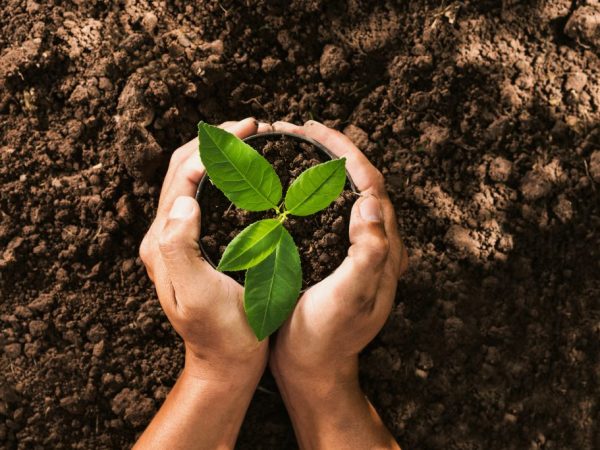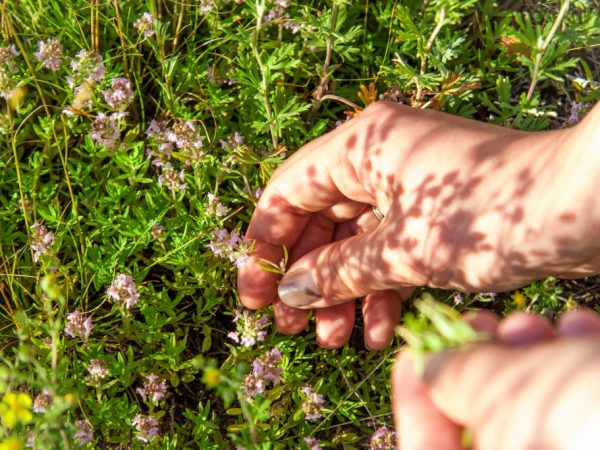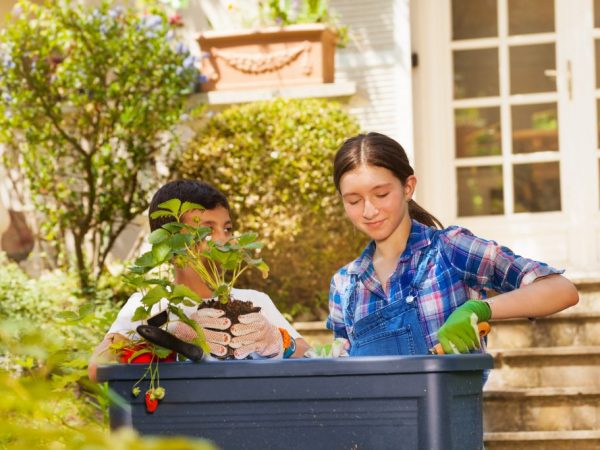Lunar calendar of the gardener and gardener for February 21, 2021
Sunday
- Thinning: Nigella onion set
- Thinning: Radish, radish
- Sowing in the ground or greenhouse: Leaf salad; Head salad
- Sowing: Peas, legumes
- Seed Soaking: Tomato
- Sowing seedlings s / p: Tomato
- Planting in open ground (greenhouse): Tomato; Cauliflower
- Landing in the ground: Sweet pepper; Early white cabbage and Brussels sprouts; Cabbage mid-ripening, late-ripening, red cabbage, kohlrabi; Eggplant
- Sowing seedlings: Early white cabbage and Brussels sprouts; Cabbage mid-ripening, late-ripening, red cabbage, kohlrabi; Cauliflower
- Vernalization, germination: Early potatoes; Mid-season and late potatoes
- Sowing: Dill, parsley for herbs; Corn; Pumpkin, zucchini, squash, cucumber; Watermelon melon; Sunflower
- Cleaning: Dill, parsley on greens
- Sowing and planting: Feather bow, perennial bows
- Sowing for grain: Cereals
- Planting seedlings: Garden strawberries
- Harvesting cuttings: Berry bushes
- Planting seedlings: Berry bushes; Raspberry, hedgehog; Fruit trees
- Budding: Fruit trees
- Graft: Fruit trees
The influence of a lunar day
On the 9th lunar day, the plants are again filled with vital activity and energy, especially their terrestrial part. This is a good time for most gardening work.

What needs to be done:
- sow, plant and replant plants;
- dive seedlings;
- cut strawberries, as well as carry out other manipulations with the crop that will lead to a good harvest;
- loosen and cultivate the soil.
This lunar day allows you to plant and transplant any plants, as well as fight garden pests. Water the plants with care.
On these lunar days, it is good to mow the grass, as well as plant trees. You can cut flowers and make bouquets out of them: the lunar influence favors their long storage. All of the harvested crop of fruits grown above the surface of the earth will also be well preserved. You can also make homemade items.
What kind of backyard work the day has a negative effect on: it is better not to engage in pruning and removing shoots. Such work on the 9th lunar day disrupts the normal sap flow, leading to the death of the plant. Digging up tuberous plants is also not recommended.
Day of the week influence
Since ancient times, the last day of the week has been associated with positivity and joy. After all, the sun is the patron saint of Sunday, which means that the day is charged with positive energy, which is best used for rest and entertainment.That is why it is better to postpone hard, dirty work to the next week.
Experienced gardeners recommend limiting yourself to watering plants and applying fertilizers. It is this stage of work that will fill the plants with strength and charge them with solar energy for further growth and development.
Also on this day you can do aesthetic activities. The creation of flower beds and living fences can be quite successful. Such work will be enjoyable and positive, and the result will exceed expectations.
Digging or plowing work should definitely be postponed. This dirty job is not for Sunday. Better to plan all stages of work on weekdays. It is not yet recommended to engage in thinning beds, removing weeds, cutting or uprooting shrubs.
If there are seasonal fruits and vegetables that need to be picked, it is worth limiting the amount that the family can consume that day. It is better to transfer harvesting for the winter and collecting seeds to Monday.
Sunday does not imply parasitism. This day of the week is special and offers the following possibilities:
- Preparation and scheduling of work on weekdays;
- Carrying out aesthetic and decorative work in the garden, flower bed or vegetable garden. These are those that bring positiveness;
- Basic plant care work that requires minimal labor costs;
- Collection of fruits and vegetables for food.
And in order not to disrupt the positive energy of the day, it is worth warning the execution of the following work:
- Do not take on hard and dirty work;
- Planting, thinning, tearing weeds, breaking branches, uprooting shrubs is prohibited;
- It is better to postpone the collection of gifts for blanks to other days.
No wonder it is said that Sunday is a day of rest and joy. The very energy of this day adjusts to calmness. And if you follow the above rules, you can gain strength and positive energy for a whole week.
Moon phase influence
The first quarter of this period is considered the most appropriate time to stimulate organs above the ground, in the vegetative part of the plant. Natural juices and the so-called forces of the earth in the first quarter are concentrated in it, which allows the leaves and stems to actively develop. It is worth thinking about sowing cereals or planting plants whose fruits ripen inside the soil. This stage is considered suitable for the cultivation of medicinal herbs.

Drip application of liquid and fertilizer in low concentrations will be beneficial for your garden and garden flora. And for more intensive growth, it is worthwhile to do the pinching and removal of the dying leaves. But you should not engage in aesthetics on the lawn: the grass on the growing moon will recover as quickly as possible. Grafting, planting plants in a permanent place and pinching will be successful, but it is better not to touch young seedlings, because in the first quarter of the lunar cycle they are especially sensitive.
It is better to start harvesting fruits from plants that produce fruits above the ground. It is they who, during the first quarter of the growing moon, are endowed with a pleasant taste and extraordinary juiciness. It is worth thinking about collecting spices, herbs and plants for making homemade tea. Remember also that flowers cut in the first quarter of the growing moon will delight you in a vase for a long time, and vegetables that you fermented or pickled will get a pleasant aftertaste.
The positive impact of the growing moon:
- Planting plants and active watering will have a beneficial effect on the yield;
- The growth of flora stimulates loosening of the soil and the introduction of weak dressings;
- The harvest harvested during the return of the moon to heaven has a delicate taste;
- An excellent time for salting and pickling vegetable stocks.
Negative influence:
- You should not carry out serious manipulations with seedlings, they are too vulnerable;
- Mature plants run the risk of saping if they interact with their trunks.
Influence of the zodiac sign
Gemini is a sign of Air. Its main qualities are dryness and low yield. Therefore, this period is not suitable for sowing seeds or planting seedlings. Growing up, such plants develop the root system as much as possible, but to the detriment of all other parts. As a result, they have a very weak stem that needs support. In the future, the taste of the crop also suffers, and the aroma, if there is, is very weak.

Because of all of the above, it is highly undesirable to plant or transplant plants in this lunar phase. Carefully caring for weakened specimens will take a lot of effort, but will not live up to expectations. When the Moon is in Gemini, watering should be avoided. Despite this, a number of gardening works during this period can and should be performed.
What to do during the growing phase
Planting or transplanting ornamental shrubs, flower seedlings, as well as sowing flower seeds will go well. Climbing plants can also be planted. It is recommended to transplant strawberries, strawberries (propagated by a mustache). This is the right time for collecting medicinal herbs, mowing.
What to do in the waning phase
This is a very good time for loosening the soil, applying mulch, hilling potatoes, weeding, removing weeds and weak ovaries. You can do the formation of the crown of trees and shrubs, pruning shoots. Digging of carrots, beets and other root crops is carried out. The roots of medicinal plants are extracted, ripe fruits are harvested.
What is allowed to do on the moon in Gemini
- To plant plants with creeping (rooted whiskers) or creeping (not rooting) stems, as well as curly and ampelous (hanging).
- To plant melons and legumes, garden and forest strawberries.
- Remove whiskers from strawberries, thin out the beds.
- Loosen the soil directly at the root, huddle, pull out weeds (do not water!).
- Tear off stepchildren, vaccinate, pinch the kidneys.
- Mow lawn and meadow grass, harvest brushwood and firewood.
- Cut flowers for sale (keep fresh for a long time).
- Dig root vegetables and onions for winter storage.
- Collect medicinal herbs and crops, as well as seeds, bulbs, tubers of vegetable and ornamental plants, intended for planting.
